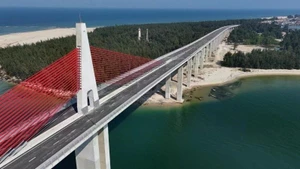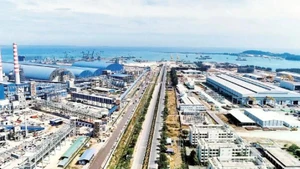The green transition is now unstoppable. Within this momentum, carbon credits have emerged as a vital instrument, aligned with the country’s sustainability goals. According to the project for the establishment and development of the carbon market in Viet Nam, as approved by the government under Decision No. 232/QD-TTg, dated 24 January 2025, Viet Nam will proactively develop a centralised carbon market that operates under market principles with state oversight and supervision. This affirms Viet Nam’s determination to keep pace with this global trend.
In theory, carbon credits can serve as collateral assets in banking transactions. The 2020 Law on Environmental Protection explicitly refers to carbon credits, while Decree No. 21/2021/ND-CP stipulates that secured assets may include both existing and future-formed assets, except those prohibited from trading or transferring. Since carbon credit transactions are not currently banned, this implies that, from a legal standpoint, carbon credits can be used in secured transactions. Viet Nam has also issued Decree No. 06/2022/ND-CP, which outlines a pilot carbon credit exchange platform in 2025, with official operation expected in 2028. As of 2024, Viet Nam has more than 300 projects participating in the international carbon market, mainly in the renewable energy and forest protection sectors.
However, the transaction costs for carbon credits in Viet Nam remain high. On average, developing and verifying a carbon credit project that meets international standards can cost between 100,000 USD and 500,000 USD per project, posing a significant barrier for small and medium-sized enterprises.
Meanwhile, banks, which have been long accustomed to traditional forms of collateral such as land and housing, lack the expertise to appraise and manage this novel type of asset. Furthermore, the current legal system does not yet offer specific regulations for secured transactions involving carbon credits, causing financial institutions to hesitate in accepting them as collateral.
The development of a carbon credit market requires a synchronised ecosystem: a clear legal framework, transparent trading mechanisms, and stringent verification and certification processes. For carbon credits to truly become the "green gold" of the economy, Viet Nam must urgently finalise the legal corridor to ensure legal ownership, authorised trading, and accurate valuation of this class of asset.
In the early stages, it is essential to pilot implementation, conduct thorough risk assessments, and select pioneering banks with strong management capabilities. Developing carbon credits is not merely an economic challenge, it is also a powerful commitment to reducing greenhouse gas emissions, protecting the environment, and enhancing the nation's position on the global stage.
The potential is already in plain sight. What’s needed now is a strategic and well-structured approach to transform carbon credits into a driving force for Viet Nam’s green economy.
















